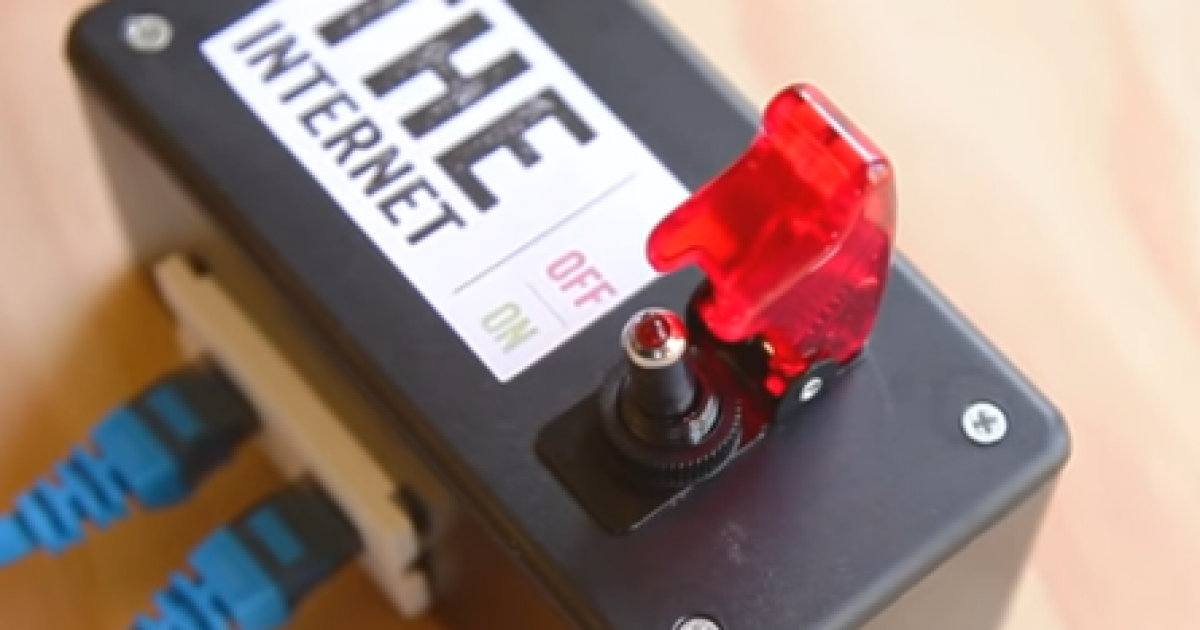
There’s a growing bipartisan coalition growing in D.C. regarding government infringements on the Internet.
Republican Senator Rand Paul teamed up with Democrat Senators Ron Wyden and Gary Peters to introduce a bill last week that would repeal the “internet kill switch.” In the House, Congresswoman Tulsi Gabbard and Congressman Thomas Massie put forward a similar bill. The “internet kill switch” is a broad-based emergency executive authority that covers communication technology. It was established prior to World War II.
“No president from either party should have the sole power to shut down or take control of the internet or any other of our communication channels during an emergency,” Paul declared in a statement unveiling the Unplug the Internet Kill Switch Act.
The bill has the intent of revoking Section 706 of the Communications Act of 1934. The law was obviously passed in era before the Internet was established. However, Eric Boehm of Reason explained the following point about this order:
The broad language included in Section 706 means that it could be invoked today to give a president ‘nearly unchallenged authority to restrict access to the internet, conduct email surveillance, control computer systems, and cell phones,’ Gabbard explained in her statement on the bill.
But this is only the tip of the iceberg as far as this bill’s nefariousness goes:
As Michael Socolow wrote in Reason last year, the law is so broad that it effectively gives the president the ability to commandeer any electronic device that emits radio frequency transmissions. These days, Socolow noted, that includes “everything from your implanted heart device to the blow dryer for your hair. It includes your electric exercise equipment, any smart device (such as a digital washing machine), and your laptop—basically everything in your house that has electricity running through it.”
The Internet has become a fixture in everyday Americans’ lives. Many routine activities could be potentially disrupted by government interference in this space and could give the government more ways to track people’s private behavior.
“With so many Americans relying on the internet to do everything from online banking to telehealth to education, it’s essential that federal law reflect today’s digital world, not the analog world of World War II,” Carl Szabo,the general counsel for NetChoice, remarked.
There has been considerable debate about the potential for the government to completely shut off the Internet. Boehm does acknowledge that there are numerous obstacles in the way of power-hungry politicians who want to shut down the Internet:
The very nature of the net—a diffuse network of interconnected computers and servers—makes it virtually impossible for the government to flip a literal on/off switch or push a stereotypical big red button to cut off all Americans.
That said, the Department of Homeland Security has guidelines for pulling the plug on wireless networks in a time of emergency, which the agency contends could be used to stop a terrorist from setting off a remote bomb. Boehm is prescient in noting that “Given that authoritarian leaders in other countries have shut down wide swaths of internet access during periods of unrest, it’s not unfathomable that something similar could happen here.” Such “emergency” measures are usually used as pretexts to undermine civil liberties in the name of public security.
“When governments around the world turn off internet access, they do significant harm to their national economies and their citizens’ civil rights,” Massie declared in a statement.
When outrage politics has totally sucked up practically all of the energy of political discussion in America, any kind of bipartisan towards the restoration of civil liberties is more than welcome. Indeed, politicians won’t always see eye-to-eye on issues, but on issues of civil liberties there’s still room for cooperation.
“The internet,” Wyden said in a statement, “is far too essential to nearly every part of our democratic system—everything from work, to school and free speech—for any president to have unilateral power to turn it off.”
Goods news to say the least. This kind of legislative behavior should be encouraged and championed. With so much tension in the air, it helps to have some issues that can draw bipartisan support. If D.C. made this a standard behavior, politics in America would be much saner.



